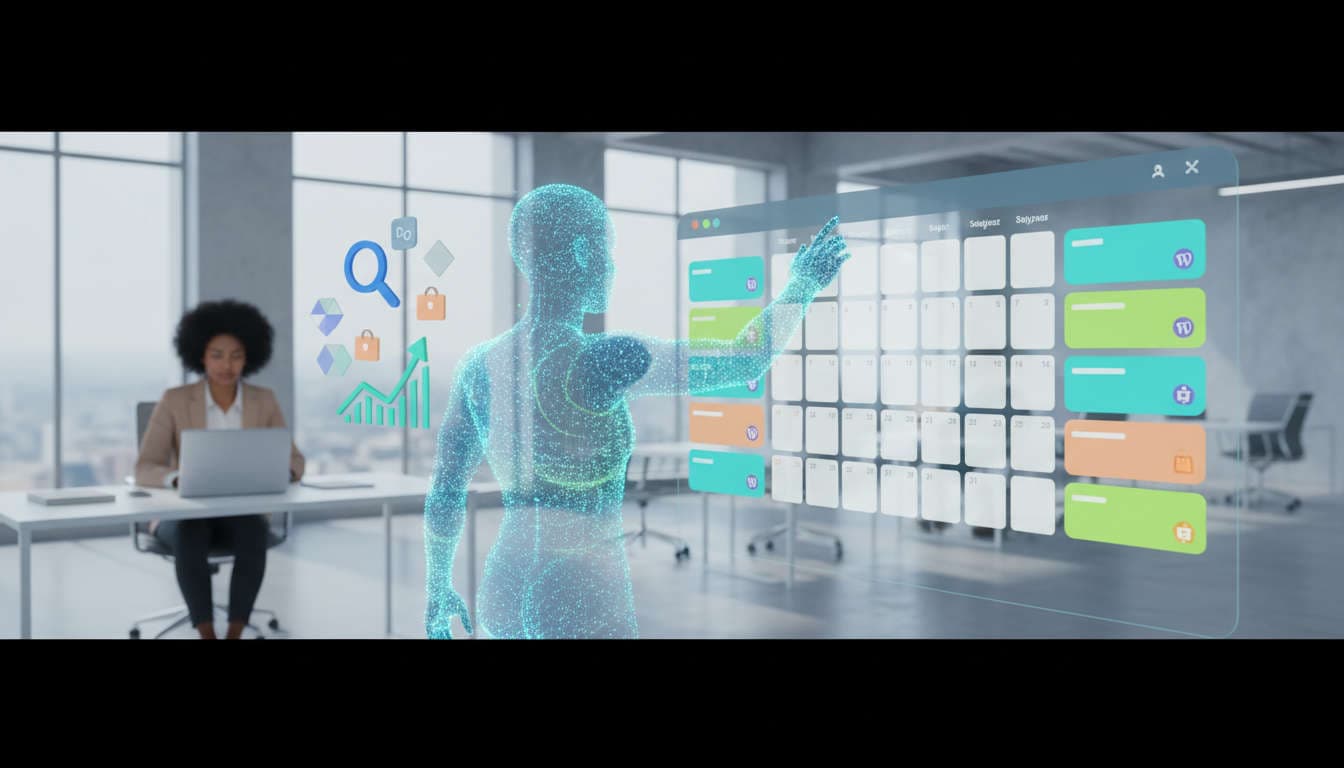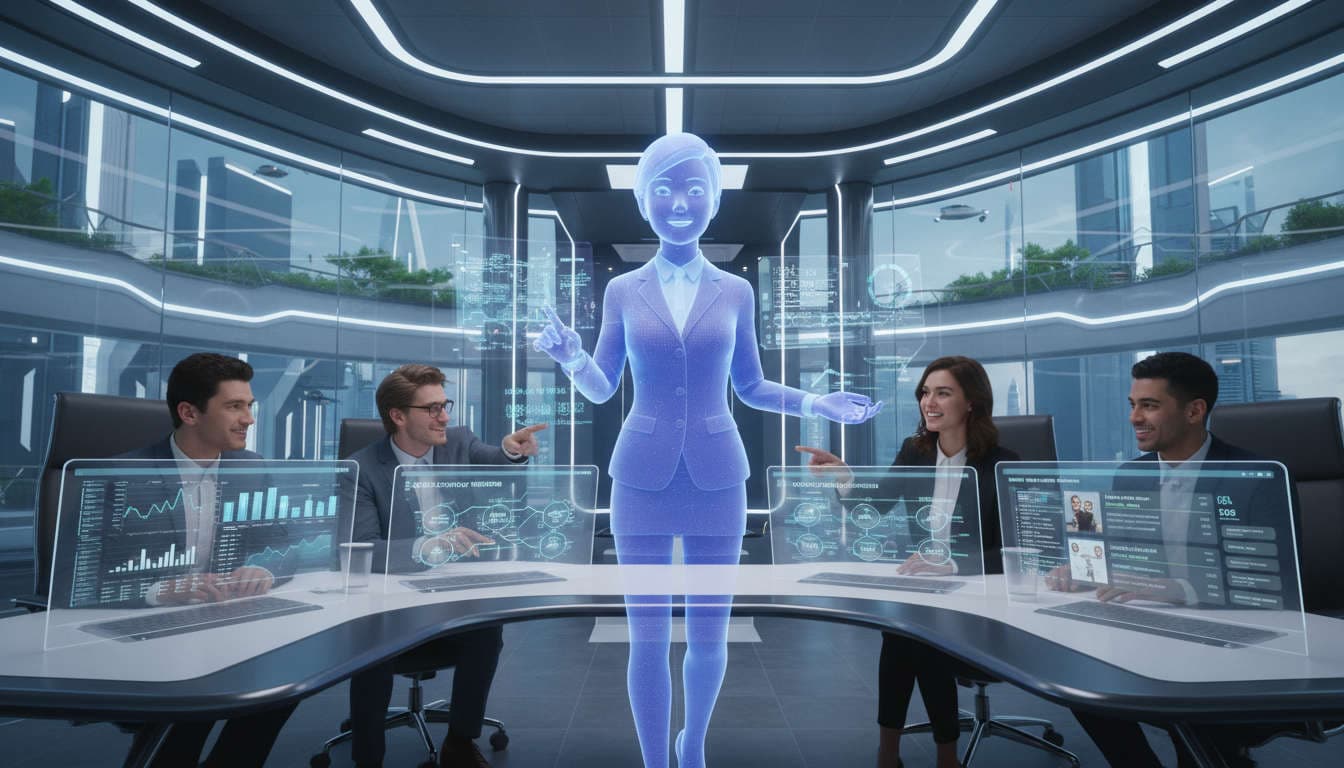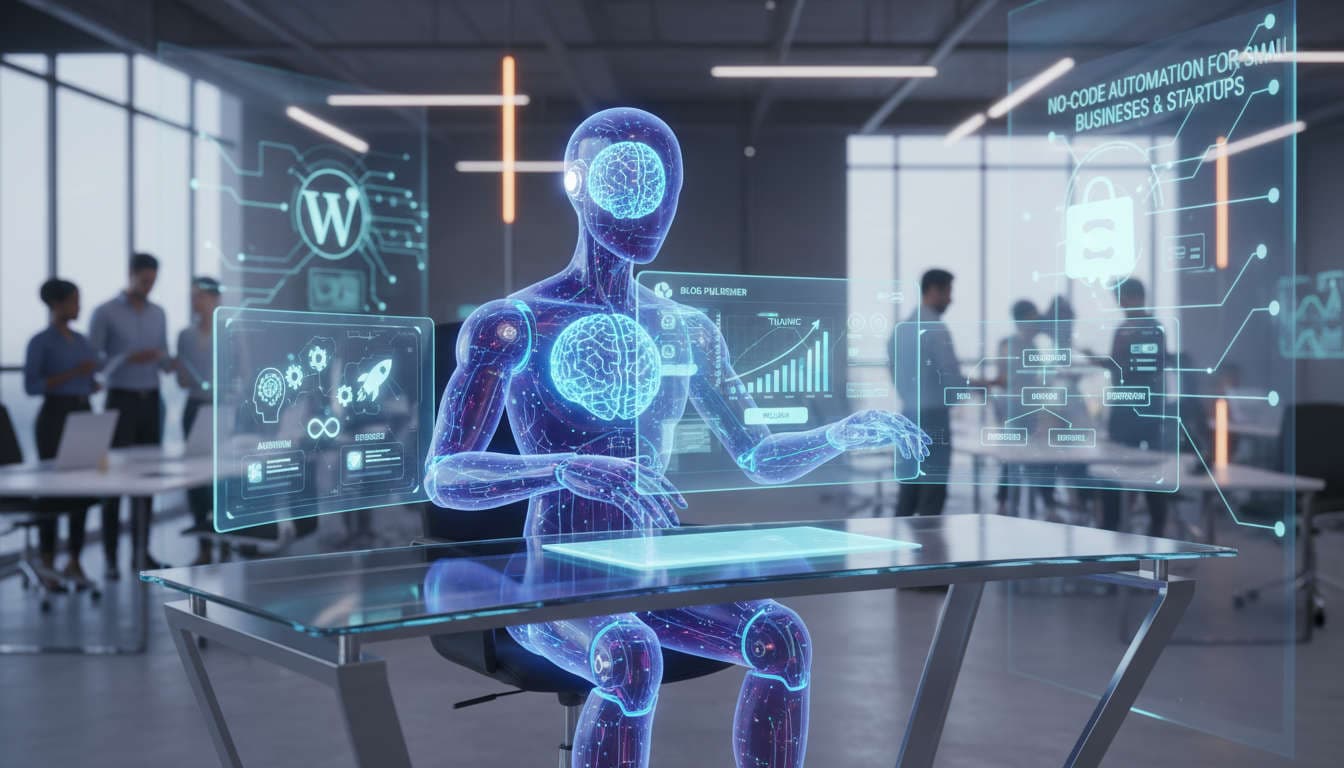The AI Agents Revolution Transforming Business by 2035
The AI agents revolution will transform business and work by 2035, automating workflows, enabling real-time decisions, and driving innovation and efficiency.

The AI agents revolution is rapidly transforming the landscape of business and work. By 2035, organisations across the globe will witness a seismic shift as AI agents automate complex workflows, enable real-time decision-making, and redefine the very nature of workforce dynamics. This article delves into the breakthroughs, challenges, and unprecedented opportunities that will shape the future of business operations and workforces in the coming decade.
The Rise of AI Agents and Their Role in Business Transformation
Over the past decade, AI agents have evolved from simple automation tools into sophisticated, autonomous systems capable of learning, adapting, and making decisions. Unlike traditional AI solutions, which are often rule-based and limited in scope, AI agents possess the ability to interact with environments, collaborate with humans, and continuously improve their performance. This evolution is driving a market boom, with the AI agents market projected to exceed $216 billion by 2035.
Consequently, AI agents are becoming integral to business processes, automating intricate workflows and providing real-time insights that empower leaders to make faster, more informed decisions. Industries such as finance, healthcare, retail, and manufacturing are at the forefront of this transformation, leveraging AI agents to optimise supply chains, personalise customer experiences, and detect fraud. Early adoption is proving to be a strategic imperative, as businesses that embrace AI agents gain a significant competitive advantage in an increasingly digital economy.

How AI Agents Are Revolutionising Work Processes and Workforce Dynamics
As AI agents in business become more prevalent, the nature of work itself is undergoing a profound transformation. AI agents are automating not only repetitive tasks but also complex, multi-step workflows that once required human intervention. This shift is giving rise to hybrid human-AI teams, where AI agents handle continuous, error-free operations, while employees focus on creative, strategic, and interpersonal tasks.
Furthermore, AI agents are scaling workforce capabilities, enabling businesses to operate around the clock and respond instantly to market changes. Performance metrics are evolving, with productivity improvements and new skill requirements emerging as key trends. However, this revolution also presents challenges, as organisations must balance the benefits of automation with the need for workforce adaptation, reskilling, and collaboration. The integration of AI agents is not just about efficiency; it’s about reimagining how humans and machines work together to achieve greater outcomes.

Breakthrough Technologies Driving the AI Agents Revolution
The rapid advancement of AI automation trends is fuelled by a convergence of breakthrough technologies. Advanced machine learning algorithms enable AI agents to learn from vast datasets, while natural language processing allows them to understand and interact with humans in increasingly sophisticated ways. Multi-agent collaboration frameworks empower teams of AI agents to solve complex problems collectively, and real-time data analytics provide the agility needed for instant decision-making.
These technologies are already delivering tangible benefits. For example, in finance, AI agents offer predictive insights for investment strategies and fraud detection. In healthcare, they streamline diagnostics and personalise patient care. Retailers use AI agents to optimise inventory and deliver hyper-personalised experiences, while manufacturers rely on them for predictive maintenance and supply chain optimisation. As these breakthroughs continue, the potential applications of AI agents will only expand, driving further innovation across sectors.
Challenges and Ethical Considerations in Deploying AI Agents
Despite their promise, deploying AI agents comes with significant challenges. Data privacy and security risks are paramount, as AI agents often require access to sensitive information. Algorithmic bias and transparency issues can undermine trust, while the autonomy of AI decision-making raises ethical questions about accountability and control. Furthermore, the impact on employment remains a concern, as automation may displace certain roles even as it creates new opportunities.
To address these challenges, businesses must adopt responsible AI deployment practices. This includes establishing robust governance frameworks, implementing continuous monitoring, and engaging stakeholders throughout the process. By prioritising transparency, fairness, and inclusivity, organisations can mitigate risks and build trust in AI agents. For a deeper look at how AI-driven automation is reshaping digital strategies, see How Agents24x7 Revolutionises SEO with AI, which explores the role of AI agents in automating SEO workflows for scalable success.
Opportunities for Businesses to Leverage AI Agents for Competitive Advantage
The AI agents revolution presents a wealth of opportunities for forward-thinking businesses. Operational efficiency gains, cost reductions, and enhanced customer engagement are just the beginning. AI agents enable the creation of new business models and revenue streams by unlocking data-driven insights and automating end-to-end processes. This, in turn, fosters innovation in products and services, allowing organisations to stay ahead of the curve.
To fully capitalise on these opportunities, businesses must invest in AI talent development, foster technology partnerships, and cultivate a culture of continuous learning. Strategic planning and agile adaptation are essential, as the pace of change accelerates. For practical guidance on leveraging AI automation for business growth, explore Agents24x7’s AI-driven SEO automation, which demonstrates how AI agents can drive real results in digital marketing and beyond.
Preparing for the Future of AI Agents in Business by 2035
Looking ahead, the role of AI agents in business will only continue to expand. By 2035, AI agents will be a core component of the digital workforce, seamlessly integrating with human teams to deliver unprecedented value. Key trends such as hyper-personalisation, autonomous decision-making, and continuous learning will shape the future of work, requiring organisations to remain agile and forward-thinking.
Decision-makers must embrace strategic planning, invest in upskilling, and prioritise ethical, human-centric approaches to AI adoption. Balancing innovation with responsibility will be crucial to ensuring sustainable success in the evolving digital landscape. As the AI agents revolution unfolds, those who adapt and lead will unlock new levels of efficiency, creativity, and competitive advantage.
Conclusion: Embracing the AI Agents Revolution for Sustainable Growth
By 2035, the AI agents revolution will have fundamentally reshaped business operations and workforces, driving efficiency, innovation, and new value creation. Organisations that strategically embrace AI agents will unlock significant competitive advantages, while those that address challenges responsibly will ensure ethical, sustainable growth in the digital era. The future belongs to those who are ready to harness the power of AI agents and lead the way in the next wave of business transformation.
Ready to Transform Your Business?
Join thousands of businesses already using AI agents to automate their workflows and boost productivity.


